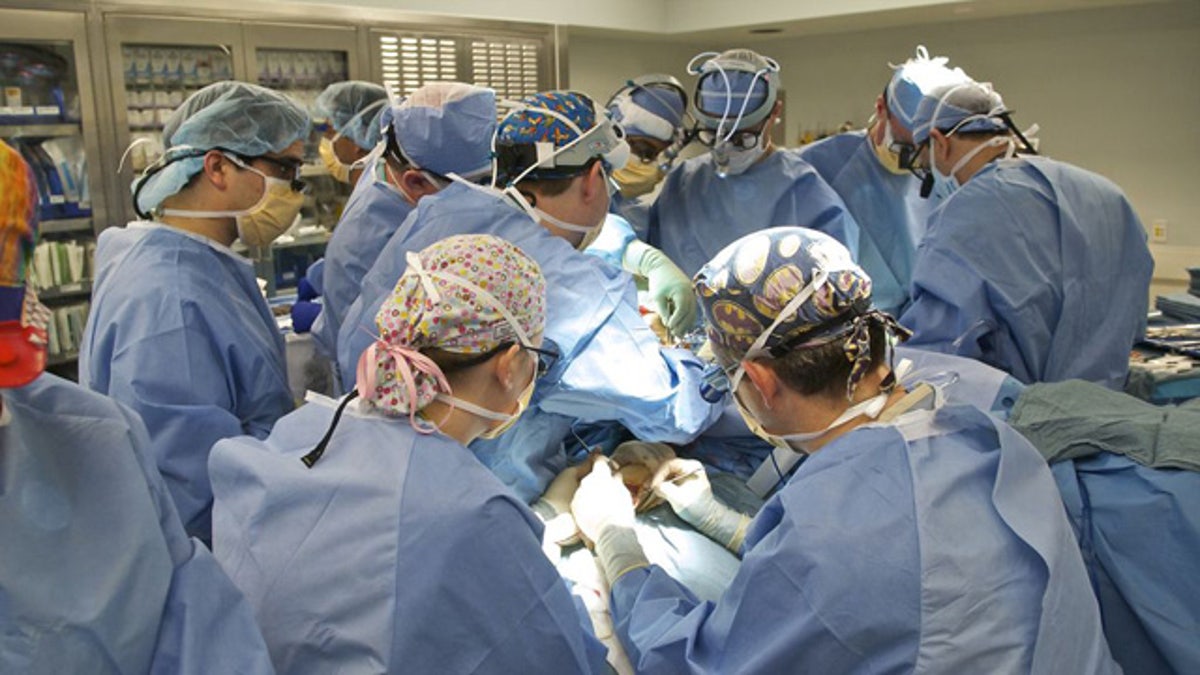
Controversial rules that limit the hours young surgeons can work while in training aren't needed to protect patient safety, a nationwide experiment finds.
Allowing surgical residents to work long hours at hospitals doesn't increase the risk that patients will die or suffer serious complications, researchers say. The residents didn't mind the longer shifts either.
"This is the first time we have randomized trial data on this controversial topic," said study leader Dr. Karl Bilimoria. "You would think for such a hot-button issue we would have had randomized trial data, which is sort of the gold standard for research, years ago."
Public concern about fatigued residents led the Accreditation Council for Graduate Medical Education (ACGME) in 2011 to restrict shifts of first-year residents to 16 hours and cap the shifts of the more senior residents at 28 hours. The regulations applied to trainees in all fields, not just surgery.
The restrictions were built on 2003 regulations that limited resident workweeks to 80 hours.
Critics of the regulations argued that the limits harmed the quality of education by forcing residents to leave in the middle of surgeries or when their patients need them most.
For the new trial, the researchers randomly assigned 117 general surgery resident programs to abide by the current limits on shifts for one year - from July 2014 to June 2015 - or to follow flexible shift lengths, as long as the total number of hours worked in an average week didn't exceed the limit.
"The 80-hour workweek was still in place," said Bilimoria, of the Northwestern University Feinberg School of Medicine in Chicago.
About 9 percent of patients died or experienced a major health problem within 30 days after surgery regardless of whether their hospital followed the strict limits or not.
Compared to residents at those stricter programs, residents in the flexible programs were about half as likely to leave in the middle of a surgery, miss a surgery or have to pass off a patient needing care to another doctor.
Residents in the two groups were similarly satisfied with their education quality and reported similar wellbeing, according to the results presented today at the Academic Surgical Congress in Jacksonville, Florida and published in the New England Journal of Medicine.
"They did note some subtle things like they had less time for family or friends and for their extracurricular activities," said Bilimoria of residents allowed to work long hours. "But when you ask them overall were they dissatisfied about that, they say no."
ACGME, which oversees resident programs in the U.S., will consider the results of the new trial as part of an ongoing review of available evidence, said Emily Vasiliou, the organization's communications manager, in an email to Reuters Health.
"We want to leave the 80-hour workweek in place and some of the other protections, like one day off in seven and (being on-call) no more frequently than every third day," Bilimoria said.
Dr. Michael Carome, of Public Citizen in Washington, D.C., told Reuters Health the study was biased to reach predetermined outcomes.
For example, he said, past research found residents often flaunt the limits set by ACGME, which would minimize the differences between the two groups. Also, he said, this trial was likely to have a significant effect only on the hours worked by the first-year residents, while many people like other doctors and nurses are involved with patient care.
"For all these reasons and others, the reported findings of no difference in patient deaths is unsurprising and uninformative," said Carome.
Also, he said, the new study did not test whether shift limits protect the health of the residents themselves, because it didn't track things like car or workplace accidents, which were found to be risks in past research that looked at the effects of working long shifts.
Previously, Public Citizen and the American Medical Student Association called the trial unethical by possibly exposing patients and residents to an increased risk of death or harm. (See Reuters Health story of Dec. 30, 2015 here: http://reut.rs/1JVnLnm.)
The Resident and Associate Society of the American College of Surgeons cheered the results in a statement emailed to Reuters Health, however.
"Based on the trial's results, the RAS-ACS firmly believes that flexibility in duty hours is not only safely possible, it is essential to provide surgical residents with exposure to the variety and complexity of educational experiences necessary to become fully trained and competent surgeons," the statement said.
